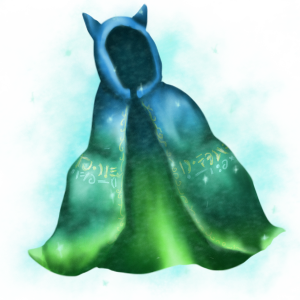|
Copyright © 2012-2020: Flying For Home & Red Zephyr Studios. All Rights Reserved. Privacy Statement | Staff & Credits | Terms Of Service Use of this site signifies your understanding of and agreement to the Terms of Service. |
First Strides
Horse Care
Stats & Traits
Racing
Series Races
Color Shows
Breeding
Breeding Basics
Intro to Matching
Standing a Stud
Pregnancy
Foal Potential
➤Producer Quality
Blood Type
Genetic Anomalies
Foal Slots
AI Straws
SIP
Grades
Horse Trader Perks
Breeding Awards
Breeding Icons
Genetics
Change Log
Item Database
Horse Care
Stats & Traits
Racing
Series Races
Color Shows
Breeding
Breeding Basics
Intro to Matching
Standing a Stud
Pregnancy
Foal Potential
➤Producer Quality
Blood Type
Genetic Anomalies
Foal Slots
AI Straws
SIP
Grades
Horse Trader Perks
Breeding Awards
Breeding Icons
Genetics
Change Log
Item Database
Producer Quality
| What Is Producer Quality? | ||||||||||||
|---|---|---|---|---|---|---|---|---|---|---|---|---|
| Introduction | ||||||||||||
|
Producer Quality, sometimes referred to as “PQ”, is a hidden hereditary trait that every horse possesses. It is one of the most important things to consider when matching and breeding horses. Producer Quality, along with input from other contributing factors, determines a foal’s maximum stats, and accordingly, maxed potential. In other words, a higher level producer may produce a foal who maxes higher than the baseline for its stat gene – for example, a “Good” stat maxing at 10. Conversely, a lower level producer may produce a foal who maxes it’s stats lower than it should genetically – for example, an “Outstanding” stat maxing at 1. PQ has ZERO impact on what genes a foal inherits and is not related to any other genes in any way. |
||||||||||||
| Levels Of Producer Quality | ||||||||||||
| Every horse has a Producer Quality trait for both males and females, which impacts their foals of each respective sex. These two do not always align with each other - meaning a horse may produce significantly better fillies than colts or vice versa. Producer Quality for stallions can be revealed as one of 5 narrative ratings: Cursed, Below Average, Average, Above Average, or Legendary. Mare PQ includes all of the above, with the exception of Legendary. This rating represents the combined average of a horse's male and female PQ. A horse who rates Average, for example, may be a mid-quality producer for both sexes or they may be high for one and low for the other. Cursed means a horse has the absolute lowest PQ for both sexes while Legendary means a stallion has the absolute highest PQ for both sexes. Finally, it is important to note that although visible PQ is condensed into 5 ratings, the main 3 ratings (Below Average, Average, Above Average) contain a broader spectrum of possibilities. In other words, horses within a rating category may not all be created equal. Two horses might both rate as Average, but one is at the bottom end and will throw noticeably worse foals than the other who is at the upper end of Average. The chart below lists typical results of breeding horses of each PQ level. Bear in mind that results may vary greatly depending upon the PQ of the dam as well as other factors that influence a foals' stats. See Foal Potential for more info.
The easiest way to sum up Producer Quality is: the better a producer a horse is the more likely they are to produce foals with better stats and the more likely they are to be better producers. The worse their PQ is the more likely they are to throw low stats and the more likely to be bad producers. However, horses can also throw high stats to a foal that inherited bad PQ or low stats to a foal that inherited good PQ. It is important to note that a horse with ANY level of PQ can produce a foal of their PQ level or ANY other level of PQ. A foal can be born with any level of Producer Quality - but the odds of what PQ a foal inherits is influenced by the sire and dam PQs. |
||||||||||||
| Determining Producer Quality | ||||||||||||
| Producer Quality Guarantees | ||||||||||||
|
There are several types of horses on FFH that come with a guaranteed minimum level of Producer Quality: Custom Goldbloods (horses bred by FFH Goldblood), horses sold in Select Sales (horses bred by FFH Select) and Imports (horses bred by FFH Import) are at least Average. Select Sale horses who are Average typically fall into the higher end of Average and cannot be weak producers for either sex. Additionally, certain Select Sale horses are sold with a higher Producer Quality guarantee. Any stallion advertised as Legendary in a Select Sale will automatically have visible Producer Quality. Despite the quality guarantees that come with these horses, it is important to note that foals of horses with a Producer Quality guarantee have no guarantee of their own Producer Quality. Although the offspring of a Legendary stallion (especially when crossed with a high quality mare) is more likely to inherit strong PQ, they still have a chance to be a bad producer. |
||||||||||||
| Pedigree Investigation | ||||||||||||
|
A horse's pedigree refers to its parentage or lineage. When pedigree is discussed, it refers to assessing this lineage for an in-depth analysis of PQ. A horse doesn't need to have a complete pedigree in order to be assessed - for example, a Select Sale horse can be said it has an exceptional pedigree as its PQ is guaranteed. Furthermore, a "solid pedigree" refers to the strength of the PQ throughout a pedigree. When determining PQ impacts upon a foal's stats, The sire's Producer Quality is weighted more heavily than the dam's Producer Quality. For this reason it is important to research a stallion's probable PQ when making breeding decisions. The easiest way to begin an evaluation of a stallion is to compare their AFP (Average Foal Potential) to their DAQ (Dam Average Quality). For example, if a stallion has a high AFP with Above Average DAQ, he could be relying on the PQ of the mares he is breeding. Conversely, if a stallion has a high AFP with a low level DAQ, he is likely a better producer. The same can be said of a mare - if she has produced all high potential foals but has only been bred to high quality stallions, there is no real gauge on her Producer Quality. It's very difficult to make an accurate estimate of a mare's PQ because most mares have relatively few foals - lower potential foals for no other obvious cause may indicate bad PQ, but higher potential foals could just be a reflection of their sires. To do a more thorough investigation of a horse's possible Producer Quality, one should study other things that affect a horse's final Potential and compare them to how the horse maxed. These things include: Stat Genes, Conformation, Blood Type Match, sire and dam PM/PD, and Surface and Distance genes. This potential predictor sheet can be used to estimate how a foal should max to better help you determine when PQ may be to blame for a foal maxing lower (or higher) than expected. |
||||||||||||
| Skewed Producer Quality | ||||||||||||
|
Although Average Foal Potential can correlate with PQ, AFP and SIP eligibility can be sometimes be "faked" or "misrepresentative". It is important to note that this can be unintentional or intentional, but it doesn’t hurt to take note of certain prefixes, barns, or lines that seem to habitually have an inflated AFP issue. Inflated AFP, which can misrepresent PQ, means that a stallion (or mare) has been bred to only (or primarily) high quality matches to ensure a higher AFP. A poor Producer could even achieve Gold SIP if he is bred carefully, so it is important to always investigate a stallion – even if he displays SIP. An easy example would be a stallion who is bred primarily to Import or Select Sale mares - he most certainly will have an inflated AFP, especially if foals also inherit strong distance and Conformation genes. Likewise, a stallion who has a low AFP and isn't SIP may not necessarily be a bad producer as there may be other factors that could account for his foals' low stats. |
||||||||||||
| Testing Producer Quality | ||||||||||||
| Producer Quality can be tested from the Genetics page of pensioned horses. Horses are only eligible for this method of testing if they are: pensioned, at least 20 years old, and owned by you. This Producer Quality test costs $3,000,000 or 300 PC for males you are not listed as the breeder for and $2,000,000 or 200 PC for males you are listed as the breeder. Tests cost $2,000,000 or 200 PC for females you are not listed as the breeder for and $1,000,000 or 100 PC for females you are listed as the breeder. | ||||||||||||
| ||||||||||||

